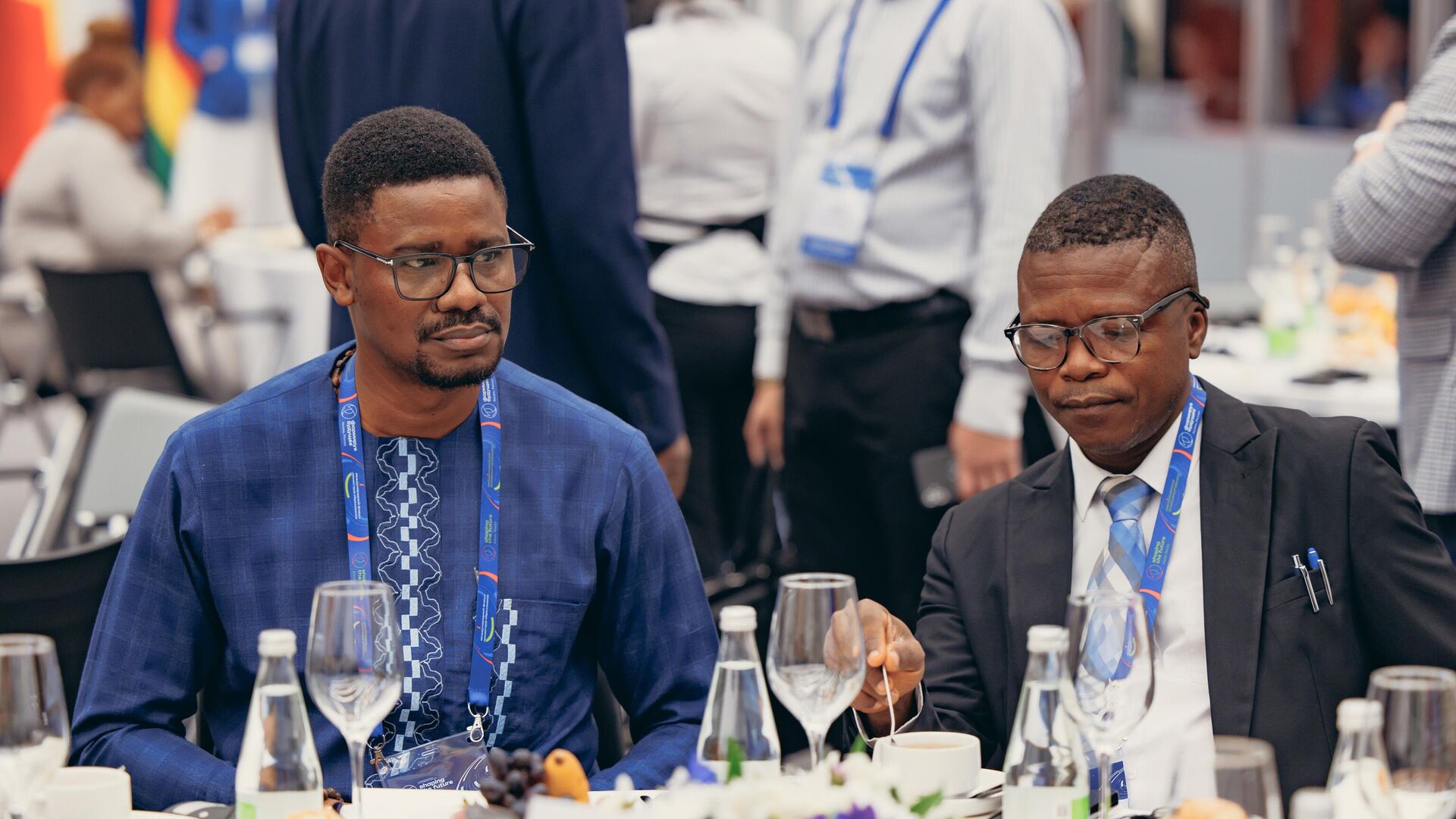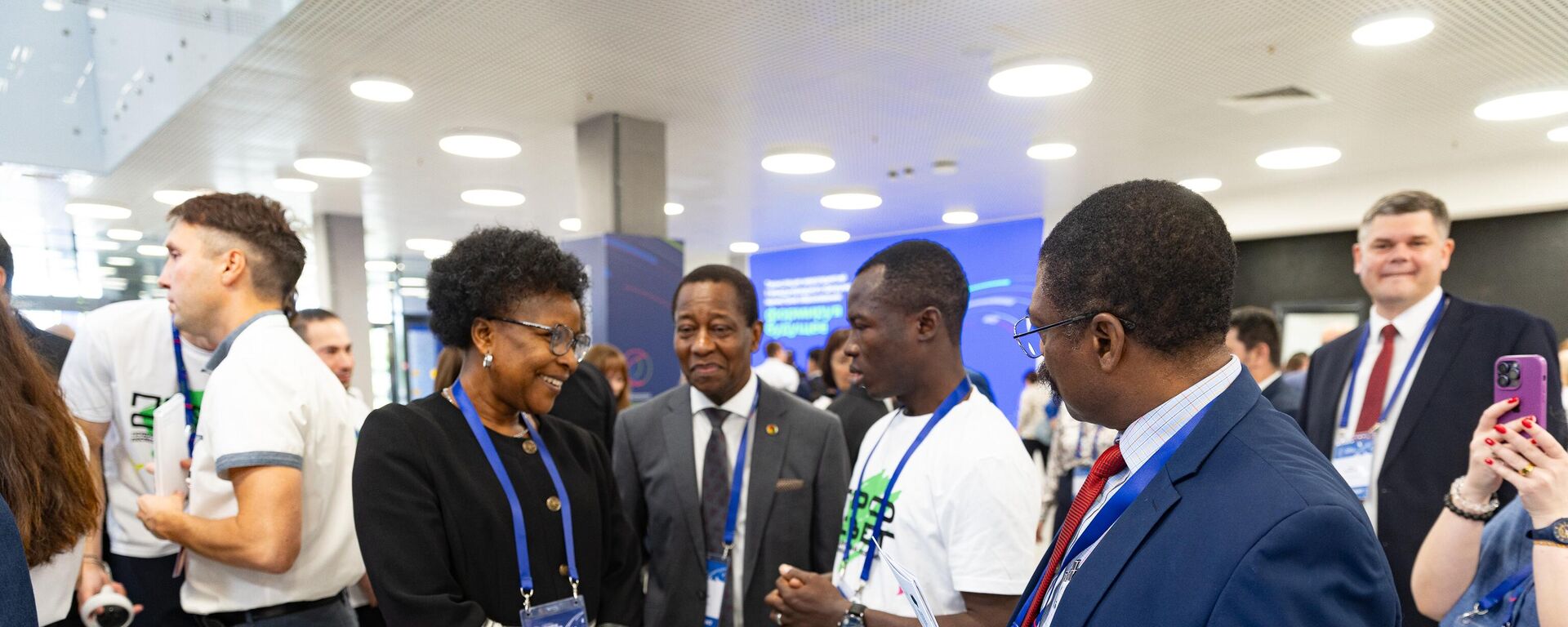Sierra Leone Aims for Globally Competitive Students and Economic Development, Deputy Minister Says
16:40 12.06.2024 (Updated: 17:02 12.06.2024)

© Photo The II International Forum of Ministers of Education"Shaping the Future"
Subscribe
Exclusive
The II International Forum of Ministers of Education "Shaping the Future," which took place on June 10–11 in Russia's city of Kazan, gathered 150 participants from almost 40 countries. The forum became a platform for discussions and collaborations in the areas of general, secondary, and professional education and the training of teaching staff.
Sierra Leone has “placed emphasis on technical vocation, communication, and training” in education in order to develop their students into professionals who will be "globally competitive," Deputy Minister of Technical and Higher Education of Sierra Leone, Sarjoh Aziz-Kamara, told Sputnik Africa on the sidelines of the forum.
“Certainly, we want to take advantage of the 21st century; we want to take advantage of technology. We want to move our students towards developing the right skill set to be employable to be globally competitive,” he said.
To be globally competitive means to invest in knowledge, and Sierra Leone has put about 22% of its budget into education “to ensure that students are internationally focused,” the deputy minister added. Aziz-Kamara emphasized the country’s desire "to harness the skills and capacity within young people" to enable domestic manufacturing and move towards industrialization, aiming to advance as a middle-income country.
"So we have our new national development plan, which we call the Big Five Game Changers," the delegate explained. "One speaks to agriculture to be full self-sufficient. And also, second is human capital development to ensure that our young people have the necessary skill set to be employable. I want to ensure that our young people have jobs. So the current agenda is creating 500,000 jobs for our young people."
Thus, the West African country is looking forward to “a partnership of mutual benefit and equity” with Russia, the official noted.
The deputy minister recalled that, given that bilateral ties between Russia and Sierra Leone have been going on for over 60 years, more than 3,000 students have studied in Russia over those years in various universities, particularly in engineering, medical, and science areas.
"As we speak, about 368 students are currently studying in Russia at various universities. So we've had a very good relationship with Russia over time and seen education currently with our national development agenda," the official noted.
He went on to say that speaking Russian and other languages is part of what makes Sierra Leonean students advantageous on the global job market.
"It would interest you to note that several of our government ministers, our doctors, our engineers are very fluent in Russian and want to maintain that relationship so that they can be globally competitive," Aziz-Kamara pointed out.
Sierra Leone attended the international forum for the second consecutive year at the invitation of Russia, he added. The deputy minister also expressed hope that participation will give his country an opportunity to "develop the necessary partnership to drive the development agenda forward."
The II International Forum of Ministers of Education was organized by the Ministry of Education of the Russian Federation, the My History Foundation, and the Republic of Tatarstan.

